New technology is appreciated and accepted across the globe for the efficiency it brings. Its presence in our daily lives has made several things easier and accessible. In fact, you hardly spend an hour without using a gadget. While there are obvious benefits of technology, the issue of electronic waste (e-waste) has emerged as a critical environmental challenge. In 2019, over 53 million tonnes of e-waste were produced globally out of which only 17.4% was collected and recycled. At evTerra Recycling, we recognize that e-scrap is the fastest-growing waste stream globally, compelling us to take significant strides towards mitigating its impact.
In this blog, we will outline the environmental impact of e-waste and how our state-of-the-art recycling solutions are making a difference.
Understanding the Magnitude of E-Waste
Electronic waste encompasses a broad range of discarded electronic devices, from household appliances and children’s toys to sophisticated IT office equipment. As technology evolves at an unprecedented pace, the lifespan of electronic devices has significantly shortened, leading to an alarming increase in e-waste. This not only strains our waste management systems but also poses severe risks to environmental health and human well-being.
Environmental Impacts of E-Waste
The environmental impacts of electronic waste are vast and varied, affecting air, soil, water, and even human health. As we delve deeper into this issue, it’s crucial to understand the multifaceted ways in which e-waste contributes to environmental degradation.
Soil Contamination
When e-waste is improperly disposed of in landfills, toxic substances such as lead, mercury, cadmium, and arsenic can leach into the soil. This contamination not only deteriorates soil quality, making it unfit for agriculture or natural vegetation, but also poses a severe risk to groundwater sources. The infiltration of these hazardous chemicals into groundwater can have far-reaching consequences on drinking water supplies, ecosystem health, and biodiversity.
Water Pollution
The leaching of heavy metals and other toxic substances from e-waste into water bodies significantly affects aquatic ecosystems. These pollutants can disrupt the reproductive systems of aquatic life, lead to the bioaccumulation of toxins in the food chain, and result in the loss of biodiversity. Moreover, the contamination of water resources poses direct health risks to humans and animals alike, leading to a range of adverse health outcomes. Not only oceans and rivers, but groundwater(which is a big part of only drinking water) is also under threat from e-waste.
Air Pollution
The burning of electronic waste, a common practice in some regions to recover valuable metals, releases harmful pollutants into the atmosphere. This includes dioxins, furans, and particulate matter, which contribute to air pollution and pose serious health risks to nearby communities. Inhalation of these toxic fumes can lead to respiratory problems, skin disorders, and other health issues. Furthermore, the release of greenhouse gasses from e-waste contributes to global warming and climate change.
Impact on Human Health
The improper handling and processing of e-waste can have direct health implications for workers in informal recycling sectors and nearby populations. Exposure to toxic substances found in electronic waste can lead to a myriad of health problems, including but not limited to respiratory issues, neurological damage, and developmental problems in children. Workers often lack adequate protective gear and are unaware of the potential health risks, making them particularly vulnerable to these hazardous substances.
Contribution to Global Warming
E-waste contributes to global warming in several ways. The disposal and burning of electronic waste releases significant amounts of carbon dioxide and other greenhouse gasses into the atmosphere. Additionally, the energy-intensive production of new electronic devices, driven by the rapid obsolescence of existing ones, further exacerbates carbon emissions. By failing to recycle and properly manage e-waste, we miss the opportunity to reduce these emissions and mitigate climate change.
evTerra’s Commitment to Responsible E-Waste Management
At evTerra Recycling, we are at the forefront of addressing the e-waste challenge through innovative recycling processes. With the capacity to manage over 200 million pounds of e-scrap annually, we are dedicated to ensuring zero waste, zero landfills, and striving for carbon neutrality. Our approach involves:
- Advanced Shredding and Sortation: Our state-of-the-art equipment efficiently processes e-scrap, separating it into ferrous metals, non-ferrous metals, plastics, and circuit boards.
- Sustainable Rebirth of Materials: In collaboration with domestic and international partners, we transform separated commodities into new goods, embodying the essence of true recycling.
- Comprehensive E-Scrap Management: From personal computers and flat-screen monitors to routers and household appliances, evTerra can responsibly manage a vast array of electronic items, ensuring they are recycled or repurposed, mitigating environmental harm at the end of cycle.
The Path Forward
Recycling e-waste is not merely an option; it is a necessity for preserving our planet for future generations. While recycling processes like those at evTerra may not always be the cheapest or easiest solution, they are undeniably the right one. By choosing responsible e-waste management practices, we can significantly reduce the environmental footprint of our electronic consumption.
Contact Us
The challenge of electronic waste is monumental but not insurmountable. At evTerra Recycling, we are proud to be champions of the environment, supporting not only the ecological health of our planet but also the social well-being of communities around the world. As we continue to innovate and lead in the e-waste recycling sector, we invite individuals and businesses alike to join us in making a meaningful impact. Request a quote to get rid of your industrial e-waste today.

